WIIW expert in Politiko: Brain drain is steadily weakening the Albanian economy
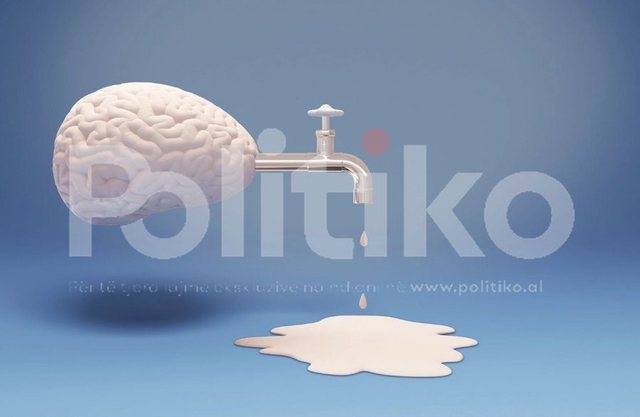
Suela Gjidede
In an interview with Politiko.al, expert at the Vienna International Institute for Economic Studies (WIIW), Isilda Mara, discussed two of the biggest challenges that the Albanian economy has been experiencing in recent years.
Specifically, the impact of immigration on the labor market and the risks that could affect the slowdown in economic growth projected for 2025.
The impact of immigration on the labor market
Asked if there is data showing the long-term impact of emigration on productivity and the structure of the labor market in Albania, Mara emphasizes on Politiko.al that the effects are profound and lasting, especially when it comes to the departure of qualified individuals.
"Emigration, especially of qualified individuals, has significant and lasting effects on both productivity and the structure of the labor market. Brain drain limits the domestic pool of talent needed for innovation, investment and technological progress.
Sectors such as healthcare, construction, and IT are already facing skills shortages and wage inflation due to this exodus.
These challenges reduce Albania's competitiveness and could deepen structural weaknesses.
We have described this as a "vicious circle": the domestic labor market fails to provide adequate opportunities - especially for highly educated workers who then emigrate," warns Mara.
She explains that this phenomenon creates a shortage of qualified professionals, hindering the ability of sectors to invest and expand, further weakening the economy.
"Breaking this cycle requires strong coordination between education systems, labor market policies, and migration frameworks. I would also like to emphasize that the approach of addressing labor and skills shortages with migrant workers from other countries - while Albanians continue to leave - has been found to be less effective in Albania. While the influx of migrant workers from Asia and other regions has been noted, Albania continues to function primarily as a transit country rather than a medium- or long-term destination ," the WIIW expert said.
Risks threatening the economy in 2025
In its latest spring report, WIIW predicts a growth of 3.7% for the Albanian economy in 2025. But, according to Mara, this growth is conditioned by several internal and external factors that could slow it down.
“Labor shortages and skills gaps, driven by emigration, could limit economic performance, especially in the construction, tourism and services sectors,” she warns.
She adds that geopolitical instability and a possible slowdown in the European Union economy could negatively impact demand for Albanian exports and the level of remittances.
"External shocks could create some geopolitical instability and a slowdown in the EU could weaken export demand and remittances, although the latter have proven resilient even during recent crises such as the pandemic and the war in Ukraine ," Mara concludes for Politiko.al.
Latest news

Marrëdhënia që s’është romancë, por s’është as thjesht kolegiale
2025-07-07 21:39:13
Citizen is asked to pay 2.5 million for a non-existent meter
2025-07-07 21:28:03




What is the ideal air conditioner temperature in summer?
2025-07-07 20:53:46
GJKKO left him in prison, Meta appeals the decision
2025-07-07 20:38:05
Where is Ronaldo after missing Diogo Jota's funeral?
2025-07-07 20:38:04

Messages from the author who killed Ilaria Sulla in Rome are revealed
2025-07-07 20:20:12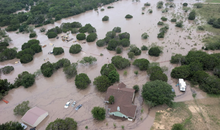
At least 91 dead in Texas floods
2025-07-07 20:12:02
Elbasan, choked by smoke, scorched by conscience
2025-07-07 19:48:16

Swarm of bees attacks citizens in France, 24 people end up in hospital
2025-07-07 19:32:03
Dementia/Hearing loss may be a warning sign
2025-07-07 19:13:06
The decision for Malltez, Gjokutaj: Boomerang for SPAK and the Court
2025-07-07 19:01:08

Former Supreme Court member acquitted of asset concealment
2025-07-07 18:36:40

WIIW expert in Politiko: Brain drain is steadily weakening the Albanian economy
2025-07-07 18:11:41
Heart health is at risk from extreme heat, here's what you should be careful of
2025-07-07 18:10:18
Today Gert Bogdani would celebrate, Edlira Çepani's touching dedication
2025-07-07 17:40:45
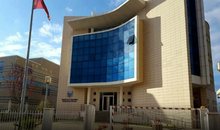


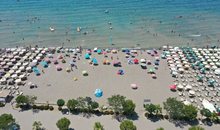


The striker severely accuses the Fenerbahce club: They tried to drug me
2025-07-07 16:21:03
A decomposed body is found in Kolonjë, initial suspicions
2025-07-07 16:03:31
Accident in Saranda, car hits motorcycle, one injured
2025-07-07 15:58:56

The most fertile age for men and women
2025-07-07 15:40:52
Locals, Rama candidate in 5 municipalities
2025-07-07 15:32:22
Blushi: Meta's criminal kidnapping, incomparable even to Navalny's in Russia
2025-07-07 15:20:34
Meet the iPhone 17 Pro, the main innovations in design and technology
2025-07-07 15:09:09
Why the release of Abi Malltez does not free him; much less Albania
2025-07-07 15:00:12
‘Lidhjet klienteliste’ të mjekëve mbushin recetat e pacientëve
2025-07-07 14:57:33
Poland imposes border controls with Germany and Lithuania
2025-07-07 14:48:15

Caught transporting firearms from Kosovo to Albania, young man arrested (NAME)
2025-07-07 14:37:47
Theo Hernandez flies to Saudi Arabia for medical check-ups
2025-07-07 14:26:47


Scorching heat, Greece orders mandatory work holidays
2025-07-07 13:54:25




Trump expects Netanyahu to discuss Gaza ceasefire
2025-07-07 12:54:27

GJKKO releases Jamarbër Malltezi from house arrest
2025-07-07 12:35:02
Tourism among contrasts
2025-07-07 12:31:01
IKMT action in Theth, starts demolition of unauthorized constructions
2025-07-07 12:24:18

The Tirana-Kamëz line is destroyed by urban fire
2025-07-07 12:00:24




Poor direction!
2025-07-07 11:16:01


Rama to gather the country's mayors on July 9
2025-07-07 10:43:31
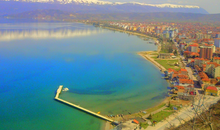
Ohrid Natural Park on the way to UNESCO's "black list"
2025-07-07 10:25:58

Registrations for the new school year begin in e-Albania
2025-07-07 09:59:09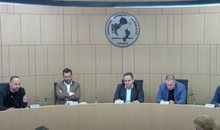
KAS decides the "fate" of the elections in four districts of the country today
2025-07-07 09:50:51
Rama does not give up on Vlora, visits the municipality again
2025-07-07 09:39:11


Fires in Gjirokastra, flames very close to cultural monuments
2025-07-07 09:12:49

Foreign exchange, the rate at which foreign currencies are sold and bought
2025-07-07 08:39:57

Horoscope, what do the stars have in store for you today?
2025-07-07 08:14:17
The week starts with scorching temperatures, the thermometer reaches 37°C
2025-07-07 07:58:36
Morning Post/ In 2 lines: What mattered yesterday in Albania
2025-07-07 07:45:15



Theologian: Behind Rama's idea for a Bektashi state in Albania, Israel is hiding
2025-07-06 20:57:48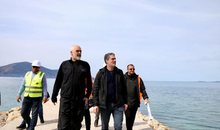
Rama's rhetoric without standards, comparing Paris, London, New York with Vlora
2025-07-06 20:35:52
Vehicle goes off the road, driver dies in Kukës
2025-07-06 20:07:47
What is the possible agreement on the Gaza hostages and the ceasefire?
2025-07-06 19:47:09

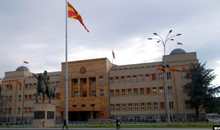
Massive hiring in the Macedonian administration ahead of the elections
2025-07-06 18:37:19
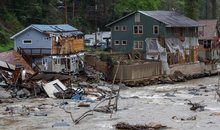
Texas tragedy: 59 dead and 27 girls still missing after devastating floods
2025-07-06 17:48:24
Albania for sale and purchase by Jared Kushner
2025-07-06 17:17:37
Kurti reacts to bomb threat in Parliament: Active hybrid war from Serbia
2025-07-06 16:55:59

After clashing with Trump, Musk says he's forming a new political party
2025-07-06 16:14:27
Turkey increases political influence in the Western Balkans
2025-07-06 15:48:14
Dalai Lama turns 90 amid global adoration
2025-07-06 15:27:46
Tax for singles or those who do not leave
2025-07-06 15:04:00

